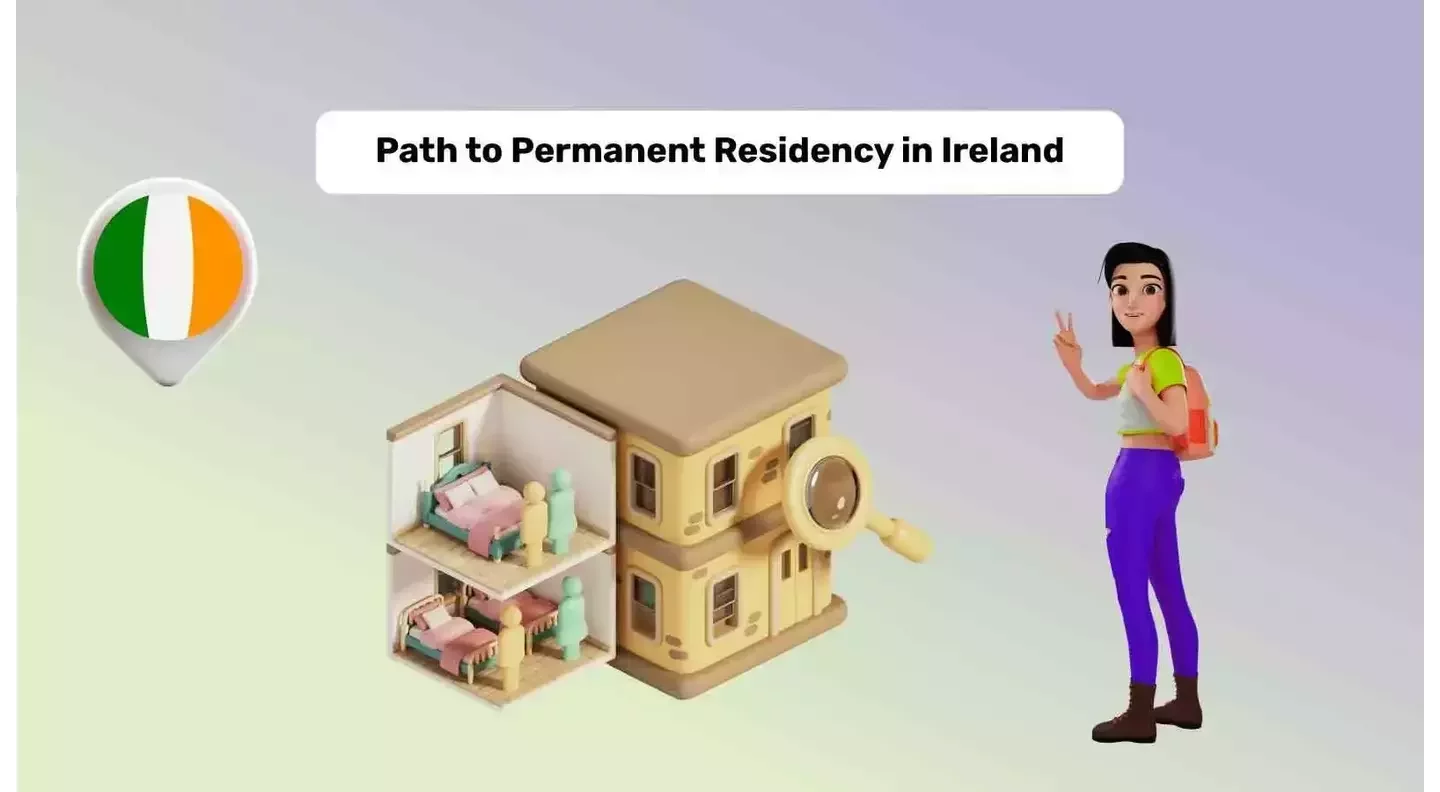Get instant loan offer suitable to your profile !


On this Page:
Explore permanent residency in Ireland a step-by-step guide. Learn about eligibility, visa pathways, timelines, and tips for a seamless PR application process.
Are you among the ones who dream about settling in Ireland? Today, there are numerous reasons why millions of international students aspire to settle in Ireland; commonly abbreviated as IE. The high standard of living, vibrant cultural scene, strong educational system, and comprehensive healthcare are among the incentives that lure them. And if you too are determined to settle there, we at GyanDhan are providing you with a comprehensive guide that will cover everything that you need to know to get permanent residency in Ireland.

Permanent residency (PR) in Ireland, often referred to as an Ireland green card, allows non-EU nationals to live and work in the country on a long-term basis. PR in Ireland for international students is like an Ireland permanent visa or Ireland PR visa, granting the holder similar rights and privileges as Irish citizens, except for the right to vote in national elections. For Indian nationals, obtaining Ireland permanent residence involves meeting specific criteria.
It could be having a job offer from an Irish employer in a profession where there is a shortage of skills within Ireland or through family reunification. The process requires the individual to initially enter Ireland on a relevant work permit and, after a requisite period of residence, apply for permanent residency, allowing them to live indefinitely in Ireland with the freedom to work without the need for additional permits.

Following are the recent Ireland immigration policy updates for 2025, including getting an Ireland green card:












To obtain an Ireland PR visa for Ireland, you should meet specific criteria. Understanding the Ireland PR visa requirements and Ireland PR eligibility is crucial for those aiming to settle in the country.





These are some of the Ireland permanent residency requirements that you should be aware of in order to complete your application successfully.

Securing an Ireland PR visa involves a detailed application process. We will answer on how to get PR in Ireland after study but before that let us understand the documents required for Ireland PR. As part of the Ireland PR process, applicants must provide several key documents to establish their eligibility to become a permanent resident of Ireland. The documents are -












Applying for permanent residency in Ireland involves two types of fees which include the following -


These fees are subject to change, so we advise that you check the official Irish Naturalisation and Immigration Service (INIS) website for updated information.

While holding permanent residency (PR) in Ireland offers many benefits which we will discuss in the subsequent sections, there are certain limitations compared to Irish citizenship. We have mentioned some of the limitations here:








Gaining permanent residency in Ireland offers a path to stability and long-term opportunities in this dynamic country, including for Indian nationals. For Ireland PR after study, there are several routes available, each catering to different circumstances and qualifications of the applicants. Here are the key ways to secure permanent residency in Ireland:






Securing permanent residency in Ireland offers numerous advantages that enhance personal and professional opportunities. Here are some key benefits:






Moving from a work visa to permanent residency (PR) in Ireland is possible. Here is how you can do it:





Read Also:







Yes, international students can certainly settle in Ireland.
Check Your Education Loan Eligibility

Ask from a community of 10K+ peers, alumni and experts
Trending Blogs
Similar Blogs

Network with a community of curious students, just like you
Join our community to make connections, find answers and future roommates.. Join our CommunityCountry-Wise Loans
Best Lenders for Education Loan

ICICI Bank

Axis Bank

Union Bank

Prodigy

Auxilo

Credila

IDFC

InCred

MPower

Avanse

SBI

BOB

Poonawalla

Saraswat